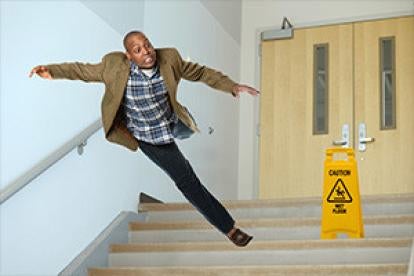We are pleased to report to significant victories in the appellate court. Both cases were argued on the recent April oral argument call.
Buxton v. McLean County School Unit 5, 2016 IL App (4th) 150248WC-U.
The Appellate Court, Workers' Compensation Commission Division, unanimously reversed the Commission's decision finding the claimant's trip and fall accident was compensable. The claimant, at the time of her fall, was a school bus driver who was walking on a company parking lot after her shift ended, when she tripped and fell while stepping off a curb. The Commission had found the claimant's accident resulted from a risk faced greater degree than members of the general public. According to the Commission, she was carrying a small bag of food in her left hand, had reportedly "turned around quickly" to go back to her bus to get her logbook, and was on her employer's premises when the fall occurred. The Commission also concluded she had fallen on ice, based on a notation in a chiropractor's records.
The appellate court dismissed the ice condition, finding that the chiropractor had mistakenly mixed a prior fall (which did occur on ice) with the instant fall, where no ice was present. The court further concluded there was no evidence the sack carried by the claimant contributed in any way to her fall, that the claimant had testified she was not in a hurry when she fell, and that the medical record noting she "turned quickly" did not reference the actual point of her fall. Furthermore the court noted the fact that the fall occurred on the employer's premises meant nothing since there was no defect found on the premises. The claimant simply fell while traversing a step, which without more, is not compensable.
Weaver v. Illinois Workers' Compensation Comm'n, 2016 IL App (4th) 150152WC.
The appellate court affirmed the Commission's dismissal of the claimant's section 19(h) petition to modify permanency based on a lack of jurisdiction. The Commission's decision was entered in February 2010, but the claimant did not file a petition to modify permanency until November 2013. Section 19(h) has a 30-month limitations period within which petitions to modify must be filed. The claimant had argued that the time to file was tolled because the original decision was modified on appeal to a permanent total disability benefit award. However, that award was reversed on further appeal, and the original 2010 decision reinstated. According to the appellate court, the time to file a section 19(h) petition to modify permanency benefits commenced with the Commission's decision and was not tolled by appeal of the underlying Commission decision.



 i
i

